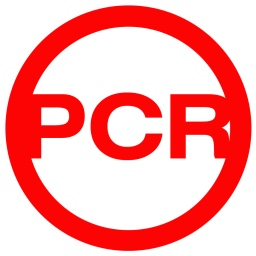Scam Texts and Phone Calls: How to Tell When It’s Not Really Your Bank or Tech Support
Oct 09, 2025Scam Texts and Phone Calls: How to Tell When It’s Not Really Your Bank or Tech Support
Scam texts and fake phone calls are the oldest and most successful online tricks — because they work on fear, not technology.
They don’t need malware or hacking. They just need you to respond.
You’ve probably seen a message like this:
“Suspicious charge on your account. Click here to cancel.”
Or maybe you’ve gotten a call from “Microsoft,” “Apple,” or even your own bank.
Let’s break down how these scams work — and how to protect yourself.
Example 1 — The “Unauthorized Purchase” Text
“ALERT: $1,099 charge on your VISA. If you didn’t make this purchase, click here to cancel.”
⚠️ Why this is a scam
-
Real banks don’t send clickable links in random texts.
-
The URL is often shortened or slightly misspelled (e.g., visa-secure.com.xyz).
-
The goal is to get you to click and enter your card info.
💡 What’s really happening
The scammer sends mass texts through cheap SMS gateways. The link opens a fake login page that captures your credentials or card details.
✅ What to do next
-
Don’t click the link.
-
Log in to your bank or card provider directly.
-
Call the number on your card — not the one in the text.
-
Report the message as spam to your carrier (e.g., forward to 7726 in the U.S.).
Example 2 — The “Tech Support” Phone Call
“Hello, this is John from Microsoft Support. We’ve detected viruses on your computer. Please open your Event Viewer and read me the errors.”
⚠️ Why this is a scam
-
Microsoft, Apple, and Google never call customers about infections.
-
The caller uses fake urgency to get remote access or payment.
💡 What’s really happening
The scammer calls random numbers, claiming to be from a trusted company. They guide you into installing remote-control software, then “find” fake problems.
✅ What to do next
-
Hang up immediately.
-
Don’t allow remote access or share any codes.
-
If you already gave access, disconnect from the internet and contact PCRescue for cleanup.
Example 3 — “We Need to Verify Your Account”
“Apple ID login attempt detected. Provide the 6-digit code we just sent to verify your account.”
⚠️ Why this is a scam
-
The scammer triggered the real 2FA code from your account.
-
If you give it to them, they gain full access.
💡 What’s really happening
They’re trying to log in right now — they just need your code to finish.
✅ What to do next
-
Don’t share verification codes.
-
Change your password immediately.
-
Enable passwordless login or an authenticator app for extra safety.
Example 4 — The “Missed Delivery” Text
“Your package is waiting for delivery. Click to reschedule: [tracking-company.xyz]”
or "Your package cannot be delivered due to incorrect address information. Click here to confirm your information."
⚠️ Why this is a scam
-
The Post Office doesn't have your address, but they have your phone?
-
These messages install malware or collect card info.
💡 What’s really happening
A fake tracking page collects personal info or infects your phone with malicious apps.
✅ What to do next
-
Check your real tracking info from the carrier’s website.
-
Never install apps or pay from a link in a text.
🧠 Pro Tip: The Two Golden Rules
-
Never act on fear. Real companies don’t use panic to get you to act.
-
Verify through official sources. Type the website yourself or call known numbers.
If someone calls or texts you about money, security, or your computer, slow down.
Ask yourself, “Did I contact them first?” If not, hang up and check it independently.
If you’ve received a suspicious text or call, don’t respond — forward it to [email protected] or schedule a free checkup.
We’ll tell you if it’s real and help secure your accounts.
Have a PCRescue Subscription?
You already have access to free tools and support
If you don't have a PCRescue Subscription, try one free for 30 days.
No credit card required.
Stay connected with news and updates!
Join our mailing list to receive the latest news and updates from our team.
Don't worry, your information will not be shared.
We hate SPAM. We will never sell your information, for any reason.

